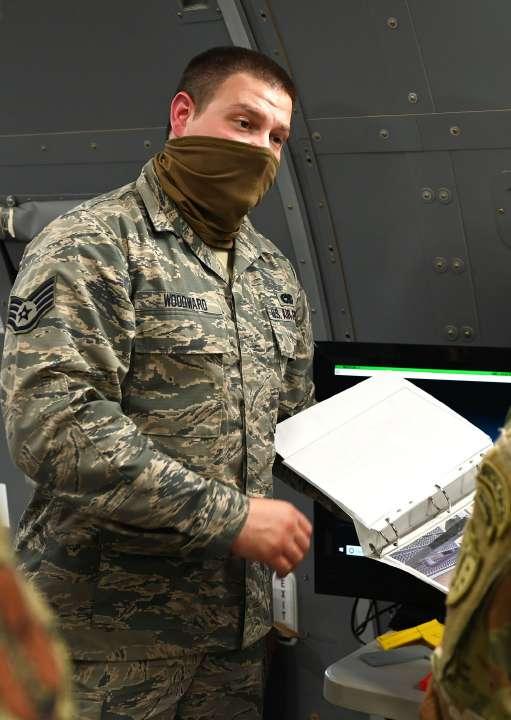
2 minute read
OUT OF THIN AIR
from Finishing Strong
by Dave Horn
OUT OF THIN AIR
Story by Staff Sgt. Victoria Nelson, 157th ARW Public Affairs
Advertisement
The soft hum of electric motors fills the air at the back of the 157th Maintenance Group metal technologies shop.
Under the trained eye of Staff Sgt. John Woodward, the heated nozzle of a new 3D printer zig-zags back and forth, drizzling layer after layer of melted plastic until a cus-tomdesigned aircraft maintenance tool takes shape as if out of thin air.
“We can make shapes or features that you can’t make with traditional milling machines or drill presses,” said the metals technician, whose been leveraging his civilian skill set since he began a temporary tour at Pease.
Woodward has been creating digital prototypes of tools that meet the unique needs of the Wing. The 3D printer has allowed him to fabricate inexpensive prototypes before the metals team crafts them out of more durable, traditional materials such as aluminum.
The metals team also has been collaborating with others on base to identify different opportunities to leverage the capabilities of the 3D printer. The printer can create models of parts for traditional machinery, improving accuracy and cutting the cost of trial and error with more expensive materials.
“It allows you to move from that prototype to some-thing more tangible, something that you can repeat,” said Woodward as he twisted a bright blue plastic tool head from its newly printed handle.
Staff Sgt. John Woodward, a metals technician with the 157th Maintenance Group at Pease, demonstrates his unit’s 3D tool-printing capabilities to NH Adjutant Gen. David Mikolaities on Sept. 16 while aboard a KC-46A Pegasus at Manchester-Boston Regional Airport.
Senior Master Sgt. Donald Colcord, NCOIC of the metals Photo by Staff Sgt. Charles Johnston, NHNG Deputy State PAO. technology shop, said the machine gives airmen another way to approach and solve problems. “The 3D printer changes the way we use our assets and support others on “What better way to show what the Air Force can do than base,” he said. to design something that no one has seen or thought of Woodward’s newest project came from a need to protect willing to invest the time and energy to learn. We have the the expensive exterior skin panels on the new KC-46 re- power to create something simple that is effective.” fueler. He designed plastic pry bars to remove the panels, which cost as much as $80,000, without causing damage. For the metals team, the most inspiring part of the proThe pry bars cost about $2 to make. cess is being able to create something that goes beyond “In this little sphere here at Pease, we can make a difference,” Woodward said. “We are making an impact.” “The only limiting factor is what you can come up with,” The printer is part of a broader innovation effort within the thinking outside the box.” larger Air Force that’s focused on continuous improvement and saving money. yet?” Woodward said. “We have smart people who are the capabilities of traditional machinery. Woodward said. “With the KC-46, it’s a great time to be










